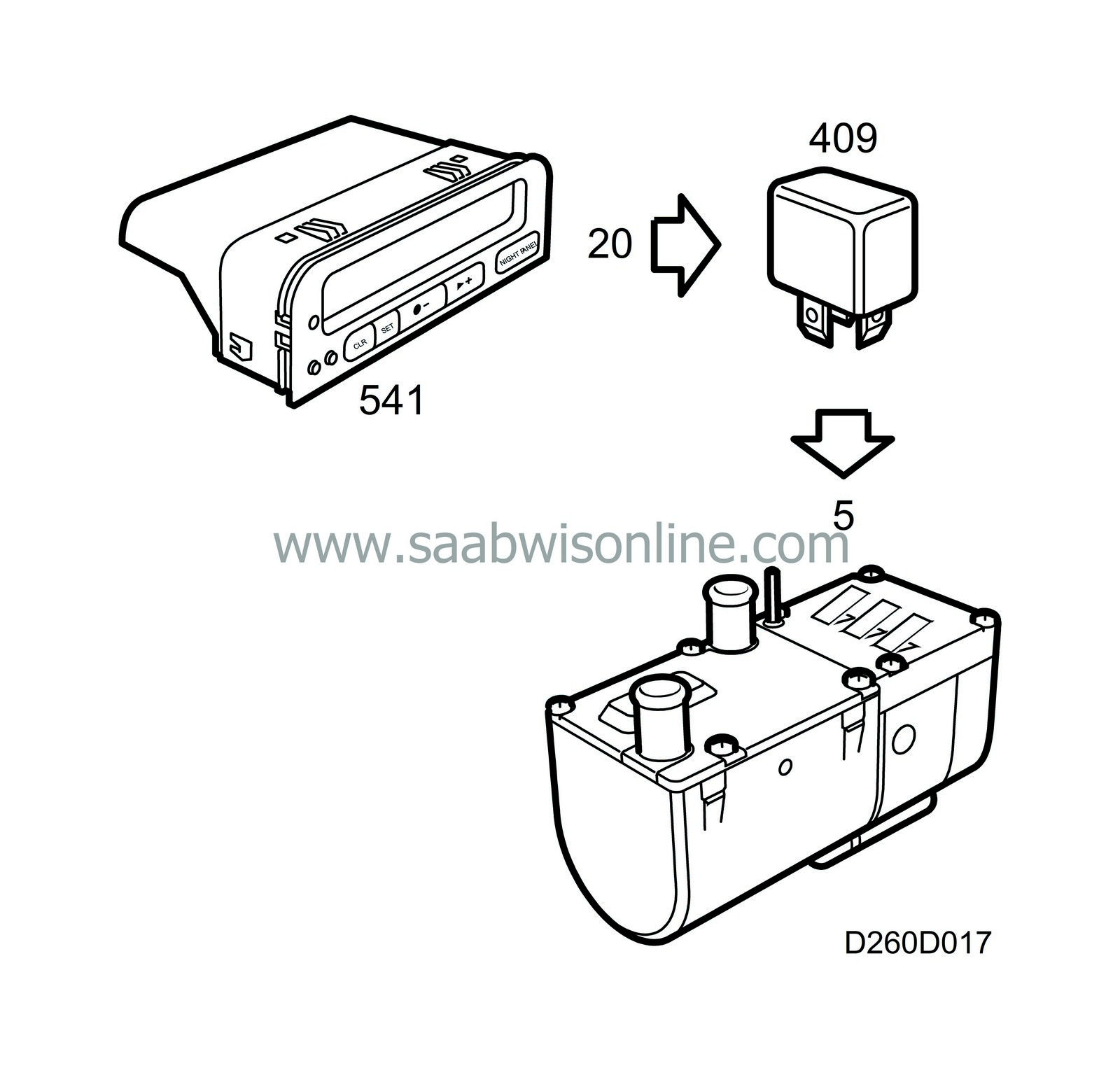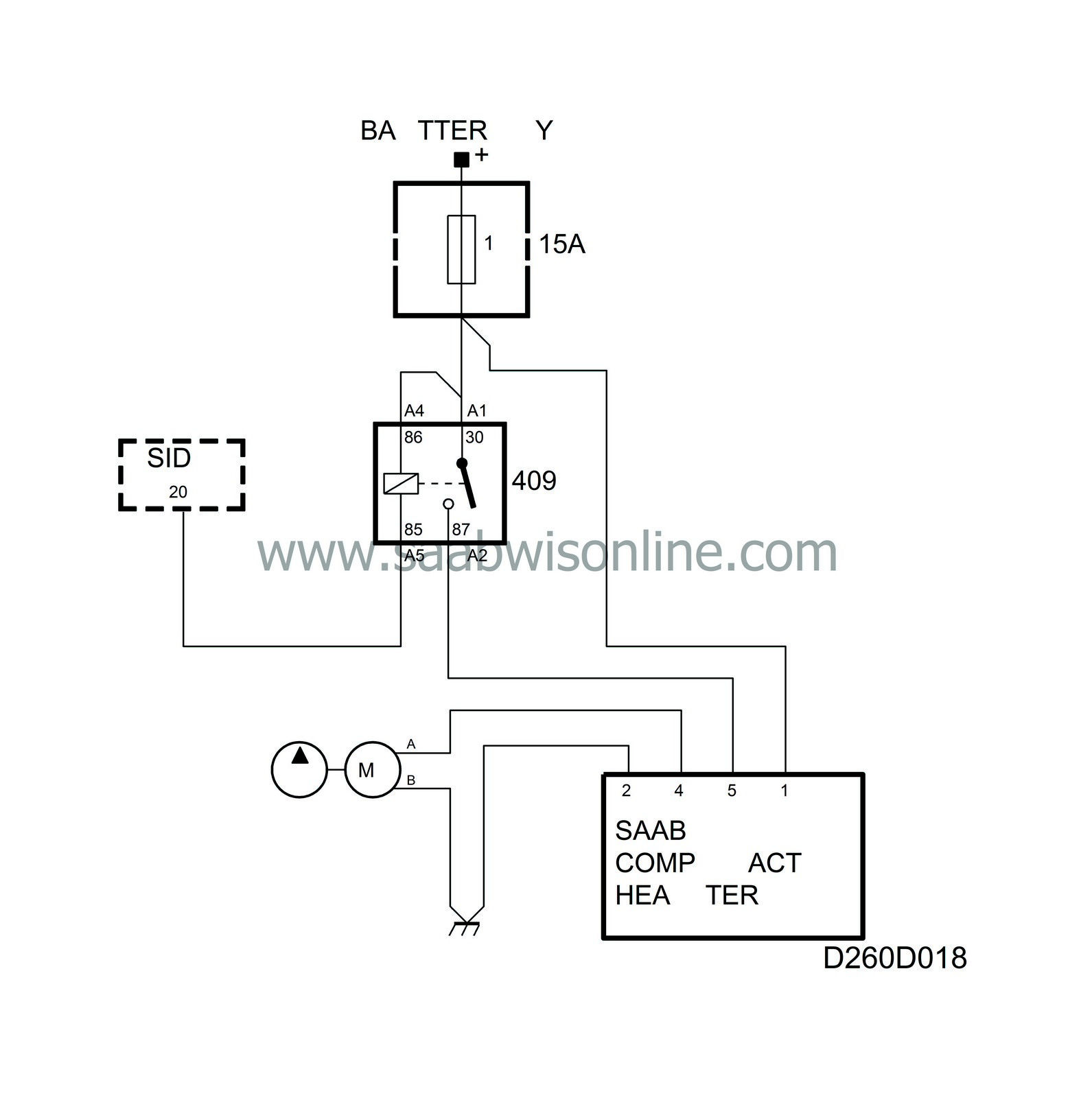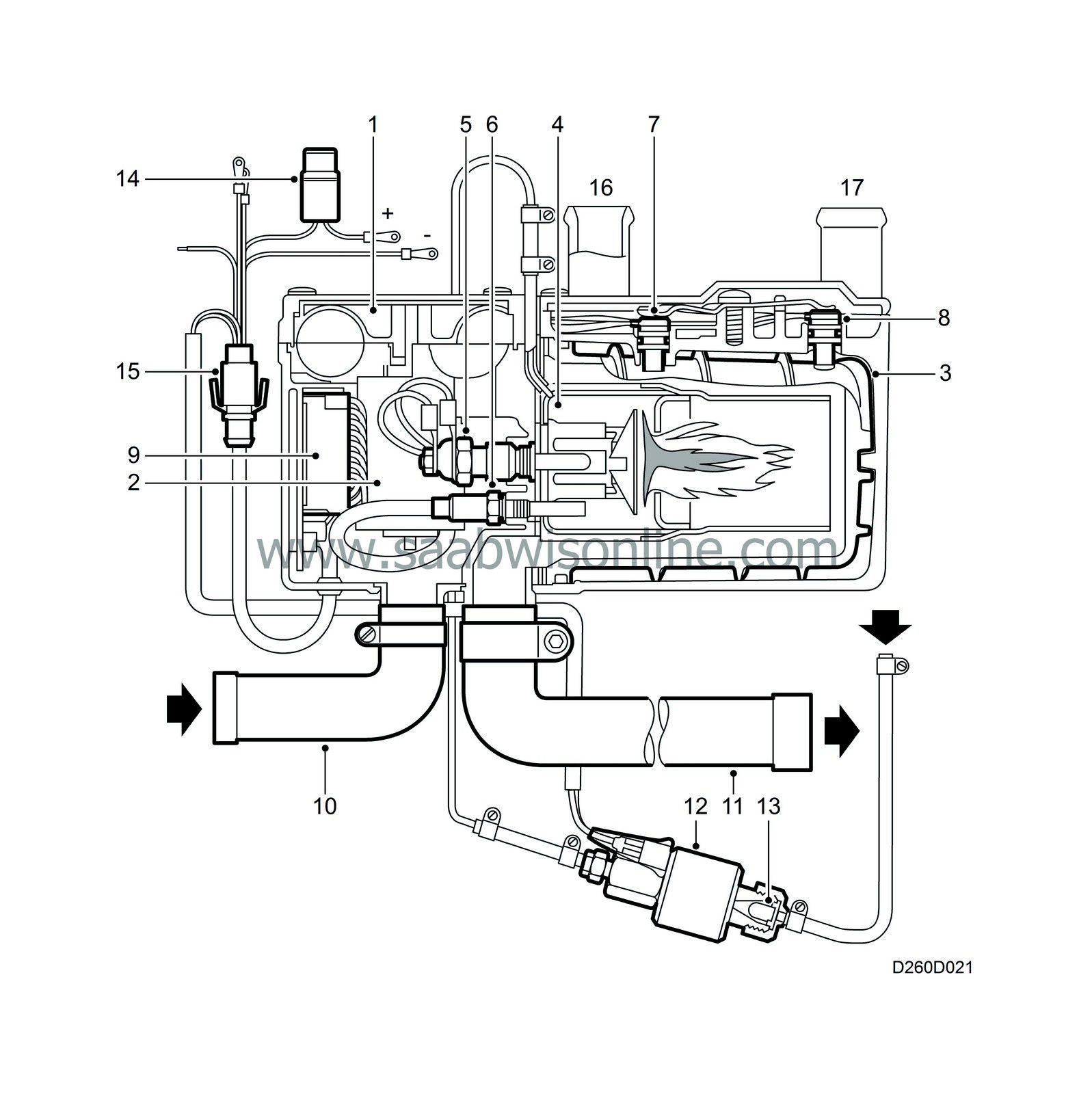Auxiliary heater
| Auxiliary heater |
| 1. |
Blower fan
|
|
| 2. |
Blower fan, engine
|
|
| 3. |
Heat exchanger
|
|
| 4. |
Combustion chamber
|
|
| 5. |
Glow plugs
|
|
| 6. |
Flame detector
|
|
| 7. |
Coolant temperature sensor 1
|
|
| 8. |
Coolant temperature sensor 2
|
|
| 9. |
Control module
|
|
| 10. |
Air intake
|
|
| 11. |
Exhaust pipe
|
|
| 12. |
Fuel pump
|
|
| 13. |
Fuel filter
|
|
| 14. |
Fuse
|
|
| 15. |
8-pin connectors
|
|
| 16. |
Coolant outlet
|
|
| 17. |
Coolant inlet
|
|


| Operating functions |
The heater combustion chamber is positioned so that it is completely surrounded by the heat exchanger, which means that the heat energy is utilised very efficiently.
The diesel heater has a fan that controls the induction of air into the combustion chamber and that, together with the fuel pump, controls the heater output.
When the heater starts, the fan operates at max. output and cold blows the combustion chamber, then the glow plug is activated. Approximately 40 seconds after glow plug activation, the fuel pump starts at half speed and then the fan starts and gradually increases in speed to half speed.
When the flame temperature sensor signals that combustion has started (temperature in combustion chamber exceeds 80°C (176°F)) the fan and pump run at full speed and the heater operates at full power, i.e. 3000 W.
When the control module receives a signal from coolant temperature sensor 1 that the coolant has reached 80°C (176°F), the pump and fan decrease to half speed and the heater decreases to low output, 1500W. If the coolant temperature then drops below 75°C (167°F), the heater returns to full output. If the coolant temperature exceeds 85°C (180°F), the heater will shut off. If the temperature drops below 75°C (167°F), the heater will start again.
| Safety functions |
Before start, the blower fan will cold blow the combustion chamber. If the temperature in the combustion chamber should not drop below 70°C (158°F) within 240 seconds, the heater will shut off.
If the control module does not receive a signal from the flame detector sensor that the flame has been ignited (temperature in the combustion chamber exceeds approximately 80°C (176°F) within approximately 120 seconds), the start attempt is interrupted. A new attempt is permitted but if this fails as well, no further attempts are made during the same driving cycle. If 10 starts have failed, the heater is blocked and no start attempts are permitted before the diagnostic trouble codes are removed.
If the temperature difference between the coolant temperature sensors should exceed 25°C (77°F), depending on, for example, insufficient coolant flow through the heater, the control module reacts and interrupts the operation before critical temperature levels are reached.
If any of the sensors detect a temperature exceeding 125°C (257°F), the control module shuts down the fuel pump. If the temperature should continue to increase to 130°C (266°F), the control module cuts off power to the fuel pump drive if this has not been done previously by the control module microprocessor.
If 10 overheatings have been registered, the heater is blocked and no further start attempts are permitted before the diagnostic trouble codes are removed.



